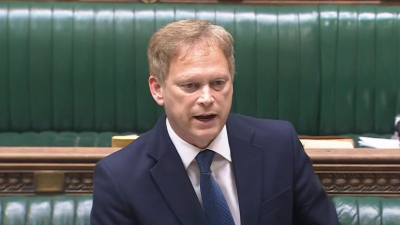In the lead-up to the elections, the atmosphere around Number 10 was anything but subtle. Key figures within Downing Street were openly discussing the potential fallout if Ben Houchen were to lose the mayoral race in the Tees Valley Combined Authority to Labour. They acknowledged that such a loss could spark a challenge to Rishi Sunak, foreseeing a flood of letters that could trigger a vote of no confidence and potentially thrust the country into an unexpected and calamitous early election. This candid speculation about the prime minister's survivability by his closest allies was an uncommon sight, underscoring the current volatility of political dynamics.
Yet, there was a strategy behind this seeming chaos. As the campaign entered its final stretch, Houchen's survival became crucial for Sunak's political future. However, Number 10 only began to convey this urgency to the media once they felt confident about their prospects of victory. They deliberately heightened the stakes surrounding the Tees Valley race, knowing full well that they were likely to emerge triumphant. Consequently, when victory seemed assured, it would come as a welcome relief.
Despite Houchen's campaign adopting a style reminiscent of Boris Johnson's personality-driven approach rather than that of his successor in Number 10, and despite the stark contrast in their political ideologies—Houchen favoring significant spending while Sunak upholds fiscal conservatism—these differences were momentarily overshadowed. Sunak himself was positioned nearby in Yorkshire on the morning of the election, ready to celebrate the anticipated win later in the day.
Houchen's charismatic public persona undoubtedly plays a role in his success, despite lingering doubts about the wisdom of investment decisions regarding Teesworks and the efficacy of partnerships forged to advance various projects. During a recent visit to Teesside, it was evident that Houchen's appeal transcended party lines, indicating a broader resonance with the electorate beyond traditional political affiliations.
Despite Ben Houchen's ability to sway a significant portion of the electorate with his perceived tangible accomplishments, Labour's narrative attempting to discredit his "levelling up" efforts hasn't gained much traction. However, beyond the surface victory lies a narrative painted by the numbers themselves.
While Houchen emerged victorious, the underlying story revealed by the data tells its own tale. His share of the vote saw a notable decline, plummeting from an impressive 73% in 2021 to just over 50% in the most recent election. Labour contends that in a scenario resembling a general election, several key constituencies—including Darlington, Hartlepool, Redcar, Middlesbrough South and East, Cleveland, and Stockton West—would revert to Labour control.
The larger question looming over the horizon, especially in anticipation of the general election, is the significance of Houchen's win, if any. Despite his success, it's clear that he secured victory with a markedly reduced mandate. There's speculation that Houchen himself harbors doubts about whether Rishi Sunak can legitimately claim credit for his achievements. While Houchen's triumph may have provided a temporary boost for Number 10, its comfort for MPs in the region concerned about the looming general election remains uncertain.
In conclusion, while Ben Houchen's recent victory in the Tees Valley may have bolstered his position temporarily, it also underscores a nuanced political landscape characterized by shifting voter sentiments and evolving electoral dynamics. Despite his ability to maintain a foothold in the region, Houchen's reduced share of the vote signals a potential challenge ahead, particularly as the prospect of a general election looms on the horizon. As the political terrain continues to evolve, the true implications of Houchen's win remain uncertain, leaving MPs in the region to grapple with lingering doubts and uncertainties about their electoral prospects in the future.







